
Classic Rock Forever
Dedicated to The Best Music The World Has Ever Seen!
CURATED BY INTERNATIONALLY RECOGNIZED ROCK JOURNALIST JIM ESPOSITO
Classic Rock Songs & Bands
Stories, Interviews, Discussions
New Video Recounts A Truly Momentous Encounter
The Real Story Behind Deep Purple
Ritchie Blackmore beckons. The guy who put the temper in termperamental invites me to ride along with him in his limo to the gig, gives me a blocbuster interview, including an incredible story about the first time he met Jon Lord.
We see videos, read articles about how Deep Purple began. Nobody’s got this story. To us it’s one of the most momentous encounters in Rock History, right up there with Mick Jagger, getting on a bus, seeing his childhood friend, Keith Richard, striking up a conversation about the rhythm and blues records he's got - Muddy Waters and Chuck Berry’s Greatest Hits.
Wanna Hear Some Great Lead Guitar?
Fleetwood Mac Songs That Made Peter Green An Early Blues Icon
None of the guitar Gods who emerged from the fabled London Blues Boom of the 1960s teased us more than Peter Green. Some wise guys back then claimed he was better than Eric Clapton. That’s hyperbole. As a pure blues player at that point in Rock History, you can make a pretty good case Green was in the discussion.
Might’ve been different if he didn’t get dosed with bad acid, though some feel he was showing signs of mental decay prior to that. Green was spontaneous. His true genius and his greatest limitation. Music seemed to pour out of Peter Green with little forethought or rehearsal. A 4-Track Recorder considered State-of-The-Art back then, some early Fleetwood Mac albums were recorded live in the studio. Session tapes released show it took a couple takes, but the band cut songs all playing together at the same time. Albatross, an early release which garnered attention, was notable because Peter Green actually worked on the track for two days.
One way or the other, however, Peter Green deserves a place in the Pantheon of Guitar Gods along with...
Essential Peter Green Playlist
It's Now 47 Years
Elvis Presley Dies For Your Sins
How could it possibly, in this world or elsewhere for that matter, be 47 August 16ths ago already since Elvis Aaron Presley forever left the proverbial building?
While this fact usually only picks at the interest of a few misguided Teddy Boys overseas at this terribly late stage in the game (or, as “they” would have us believe, their senior-aged, gap-toothed brethren south of the Mason Dixon line) August 16, 2024 got me to thinking, probably for the first time ever:
Why Elvis?
Well, in a word...
Elvis Has Left The Building
20 Big Ones
My All-Time Favorite Beach Boys Records
by Gary Pig Gold
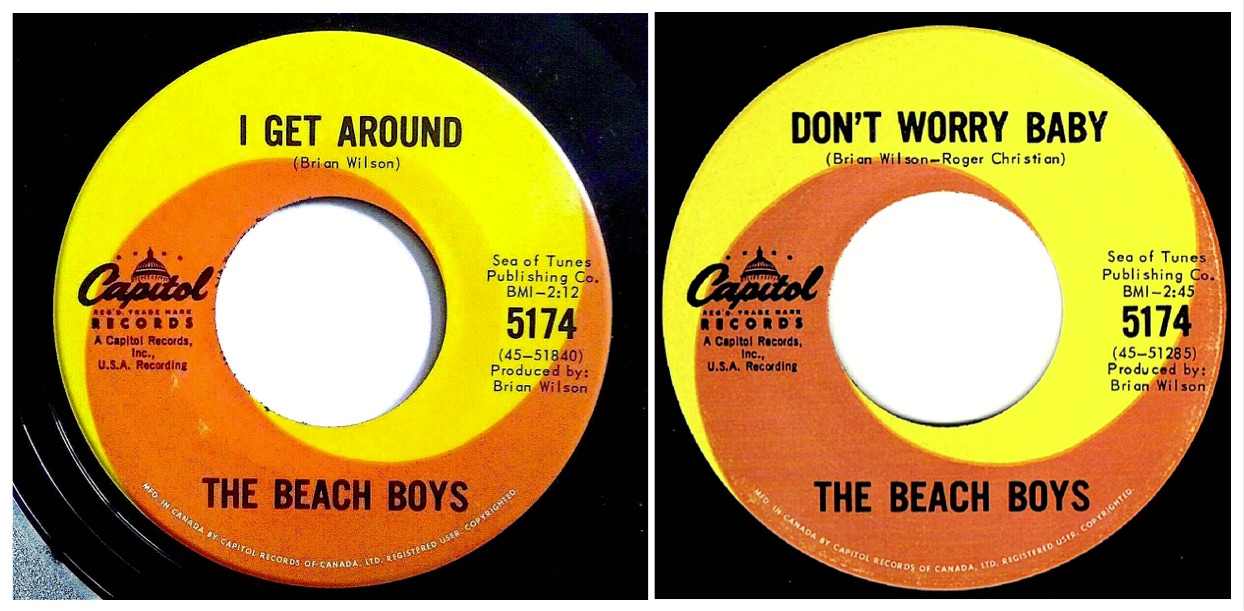
With our beloved Biggest Brother Brian having just celebrated his 82nd (!) Birthday, smack dab there on the first day of endless summer 2024, I thought it high time and tide indeed to take a brief overview of some of the man’s indisputable classics; the ones which have been spinning most frequently of late on the ol’ Pig Player, that is…
My All-Time Favorite Beach Boys
The Definitive List
Bob Dylan's Top 10 Best Songs Ever
Have seen a couple articles lately about Bob Dylan’s Best Top 10 Songs. Don’t know what these people are listening to, ’cause they certainly ain’t heard much Dylan. Don’t even seem to realize he put out albums before Self-Portrait.
I remember Columbia Records sending me Planet Waves to review in 1974. Tried to like it, but Dylan was pretty much done by then. Words I ended up eating in ’75 when his masterwork Blood on the Tracks came out.
You can still make a decent argument, however, that...
Continue Bob Dylan's Top 10
Greatest Guitar Solos in Recorded Rock History
by Jim Esposito
A great guitar solo is a thing of beauty, a composition. Many guitarists jump into a break with loud, flashy scales played at a warp speed. Those guys are just filling space, showing off to get girls, not constructing a lyrically cohesive piece of music. Some players, however, have a way of composing while they improvise.
Whatever I list some people will agree, some will disagree. Others may be irate I left their hero, or the song that changed their life off my list. (“I was all messed up. Then I heard so-and-so playing such-and-such…”) There will be great guitar players who don’t appear on my list. This is not to denigrate their virtuosity. Some guitarists boast an incredible body of work, however you can’t point to one solo in one song that simply crystallizes their brilliance. Other guys are technical virtuosos, but don’t have the mentality to construct a fluid solo.
I realize songs and artists I list go back to the Golden Days of Classic Rock. Some may cite newer music. From the 80s or 90s perhaps. Artists and songs I list here are the originals. Eddie Van Halen did great work, but without Jimmy Page preceding he might’ve been flipping burgers. Popa Chubby, Jimmy Thackery and Joe Bonamassa have likewise play excellent guitar, but stood on the shoulders of Eric Clapton and Ritchie Blackmore.
Also, I differentiate here between a Solo and an Instrumental. A Solo is a dedicated interlude in a song. “Pipeline,” “Hideaway” or “Samba Pa Ti” are...
Continue Top Guitar Solos
Long Lost Album Cuts from The Golden Age of Rock
Top 10 Classic Rock Songs You (Probably) Never Heard
If anybody out there knows half these songs we’ll be impressed.
Through the Classic Rock Era A LOT of music got released. Some of it was great. Some of it was popular. Some of it was overlooked. Some of it was great AND overlooked. Programming Directors and Disc Jockeys at Radio Stations focused on more commercially appealing cuts. You heard them a lot.
We are not complaining. These people were in business. We respect that. To quote Peter Townshend, it was a karmic realty. If it wasn’t for that structure (a structure sadly missing today) we only would’ve heard a fraction of the music we enjoyed.
Meanwhile, a lot of album tracks went virtually undiscovered. That doesn’t mean these songs weren’t great.
Here we focus on obscure cuts that never got the recognition we feel they deserve.
Top 10 Songs You (Probably) Never Heard
New Release
Rock 'n A Hard Place
Rock & Roll Nights in Los Angeles
A High Octane Fictionalized Memoir
Backstage, Behind the Scenes
At the Hottest Rock Club in The World
Written by Internationally Recognized Rock Journalist
Jim Esposito
“Like the weirdest guy I ever met.”
– Grace Slick
“Made me wonder if I wasn't losing something. I always loved music. In high school, it was all me and my friends talked about - aside from sex, drugs, sex, drinking, sex, cars, and sex. I'd heard A LOT of music since then. Yet here I was in a smoky barroom, a band on stage, drink in one hand, a nose full of coke. Pity I didn't have any pot, make the roll call complete. A crazy business. But what would you expect from an industry based, ultimately, on musicians?”
Buy Rock 'n A Hard Place
Classic Rock Record Review
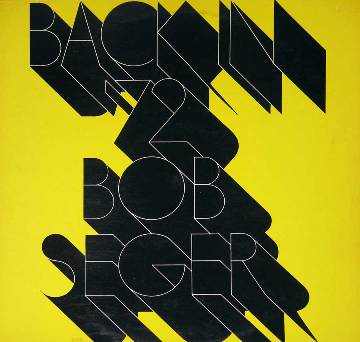
Back in '72
Bob Seger
Released 1973
Palladium Records
by Jim Esposito
Bob Seger’s long lost album Back in ’72 turned 50 last year. Many people have never heard this record, but it was Seger’s first great LP. His sixth released, it marked a turning point in Seger’s career as he went from being a bar band to a national act, from a singles band to an album artist.
Unfortunately, it has never been released as a CD. Seger himself blocked that. Over the years we heard a number of reasons. Bob did not like his vocals. We always assumed it was because
Continue Reading Bob Seger Review
Songs That Should Be Taken Out and Shot
by Jim Esposito

Classic Rock spawned some of the greatest songwriters in musical history. We marveled at their lyrics, reveled in images conjured up by their three dimensional poetry. But that doesn’t mean these freakin’ geniuses didn’t throw in a clinker every now and then. Even some of the worst songs by the best bands had some redeeming artistic value. Deadlines and commitments, as Bob Seger said. Hey, you got a couple weeks off from touring, need to record an album. All you got are some tunes you wrote in the back seat of a station wagon sandwiched between your drummer and bass player driving between Austin and San Antonio. So some of that might be understandable. Maybe you got a few catchy tunes on the LP, one standout track hits the Singles chart, some others not so good. Still, through the storied annals of Classic Rock...
Read Songs That Should Be Taken Out & Shot
Top 10 Greatest Acoustic Songs by Electric Classic Rock Bands & Artists
by Jim Esposito

Rock ’n Roll is dominated by loud electric guitars. And we love ’em. Still, we appreciate when our favorite artists record softer, acoustic songs. Over the decades many of these have risen to the most Classic of Classic Rock.
As for paraments, this Top 10 looks at acoustic songs from electric artists. The likes of...
Read The Top 10 Greatest Acoustic Classic Rock Songs
A Momentous Encounter Leads to The Formation of Monumental Hard Rock Band
History of Deep Purple: Ritchie Blackmore Meets Jon Lord
by Jim Esposito
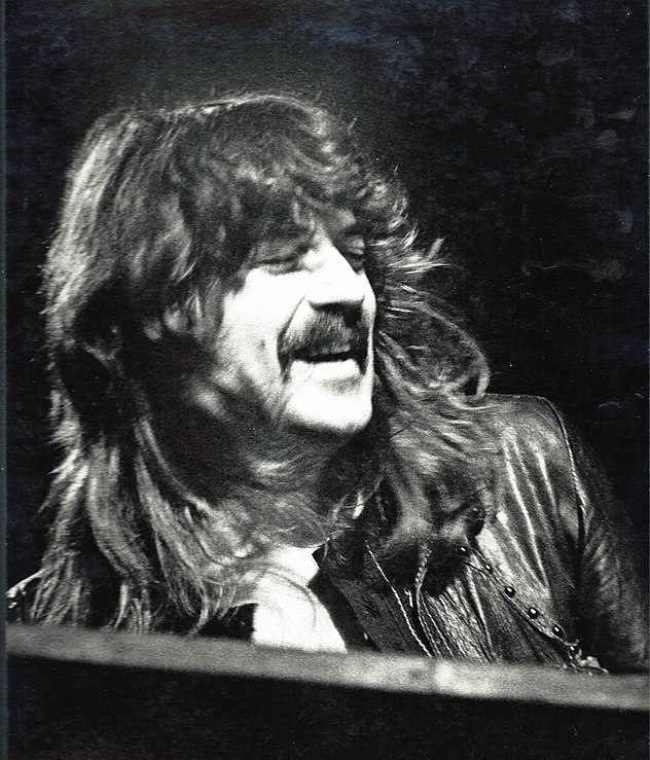
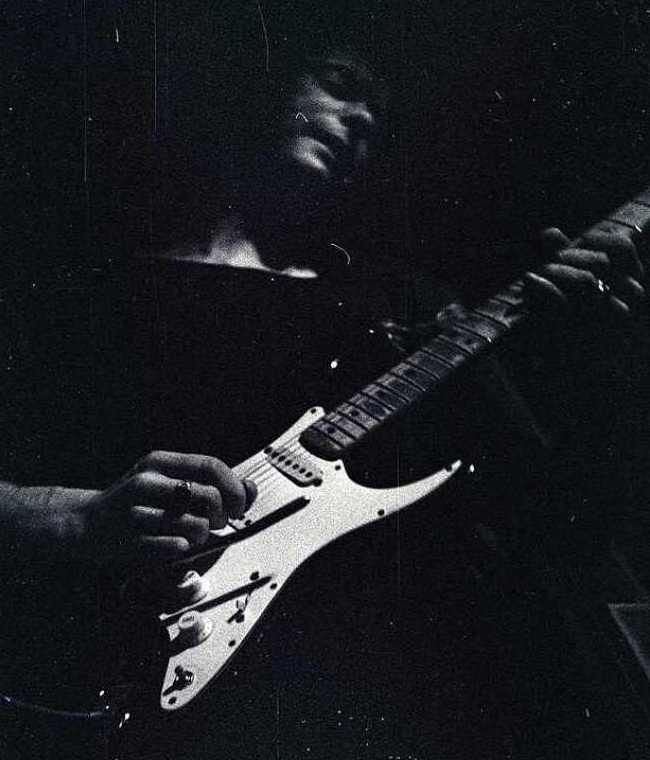
“I don’t call that progressive. I just call it heavily rehearsed.”
– Ritchie Blackmore
Circa 1967 an undiscovered British guitarist named Ritchie Blackmore was living in Hamburg, Germany, when a drummer who liked his playing phoned him. He was getting a band together.
“I’ve got a guy on organ here, and various other people. I want you to be the guitar player.”
Ritchie knew this drummer was a bit mad, but he hopped a flight to England, headed for the guy’s flat in Kensington, which at the time was the real hippie-type section of London.
The drummer never locked his door. Open day and night, anyone who wanted to come in would come in. Consequently it had become a crash pad for the dregs of the world. People were high on everything, including canary seeds. Others were shooting up.
Arriving, Ritchie knocked on the door. No answer. So Ritchie tried to open it. The door fell off its hinges, crashes to the floor. BLAM!
Looking through the doorway, to Ritchie’s surprise the flat didn’t...
Read Ritchie Meets Jon
Louie Louie by The Kingsmen Tops The FCC's 10 Most Wanted
by Jim Esposito
The first real sex record happened in 1964 when The Kingsmen recorded “Louie Louie” on Wand Records. There is still controversy surrounding this song.
Florence Greenberg, president of Scepter Records, which owned Wand, bought the master of “Louie Louie” from a bunch of kids from Seattle. “Louie Louie” is an old Cajun folksong about the shrimp boats. A sailor goes out to sea and thinks about his girl, who is waiting for him in Jamaica. Of course, you’d never know this unless you saw the lyric sheet because the vocals in the song were so mumbled, garbled and slurred you really couldn’t tell for sure just how the words went.
As the legend goes the secret of “Louie Louie” was discovered accidentally by some college kids in Michigan who put the record on a turntable. When played slow, “Louie Louie” seemed to contain direct sexual references and dirty four letter words.
In 24 hours, almost every kid in the country seemed to know. Kids were locking themselves in their bedrooms, playing the 45 at 33 rpm’s. It was all anybody seemed to talk about in school. And kids who knew what the words meant were suddenly just a little cooler. You couldn’t go to a dance where it wasn’t played four or five times. And all the bands always knew the dirty version, which they’d sing, loudly, while all the kids snickered because your parents never paid any attention to that “noise” anyway.
Meanwhile, in Washington D.C., the Federal Communications Commission started getting complaints about “Louie Louie” with copies of what were supposedly the lyrics. The FCC had not drawn up any policies or guidelines that would apply to the case at the time, but they took one look at these alleged lyrics and decided they had to hear it for themselves. So the FCC ran out and bought a copy of “Louie Louie.”
William B. Ray, Chief of Complaints and Compliance Division in the Broadcast Bureau of the FCC called “Louia Louie” The Commission’s “most famous case.”
Read the Ode to Louie Louie
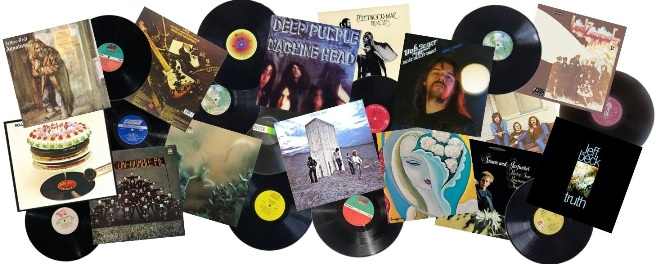
Top 10 Perfect Classic Rock Record Albums
by Jim Esposito
My (G- G- G-) Generation was fortunate to grow up through the Era of The Record Album. Rock was everything to us. We busted out of school, got away from those fools, learned more from a three minute record than we ever learned in school. So says The Boss, and it was true. It was our Shangri-La where we sought refuge, our Forum where we debated philosophy, extolled politics, learned about love. And it was our church, where we rejoiced in blessings the (Rock) Gods bestowed upon us.
Our lives are landmarked by a succession of immortal musical documents, three-dimensional poetry. We remember where we were, what we were doing, who we were doing it with when we heard...
Top 10 Perfect Classic Rock Albums
Rock Anthropology
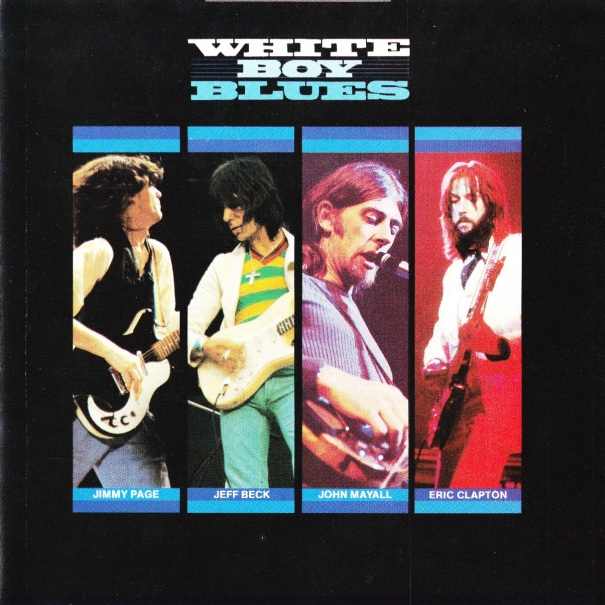
The Immediate Sessions
Guitar Boogie &
White Boy Blues
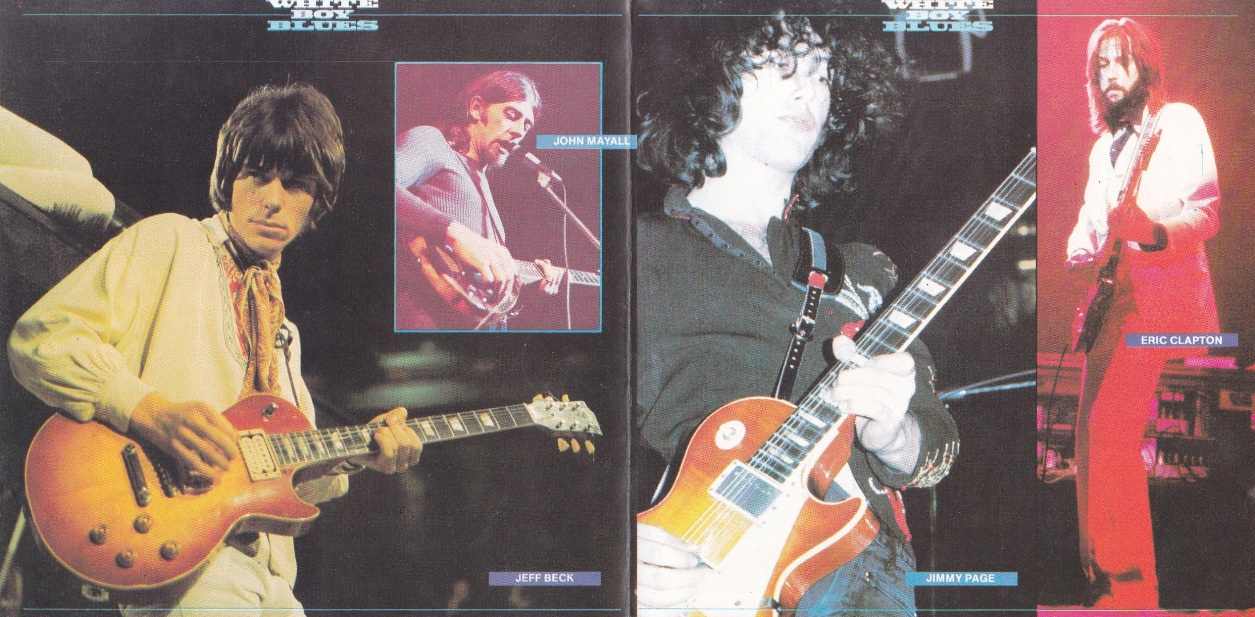
Blues Jams
Eric Clapton, Lead Guitar
Produced by Jimmy Page
(Playing Rhythm)
Mick Jagger on Harp
Bill Wyman (Bass)
Charlie Watts (Drums)
Ian Stewart (Piano)
Special Appearances
Jeff Beck, John Mayall,
Nicky Hopkins
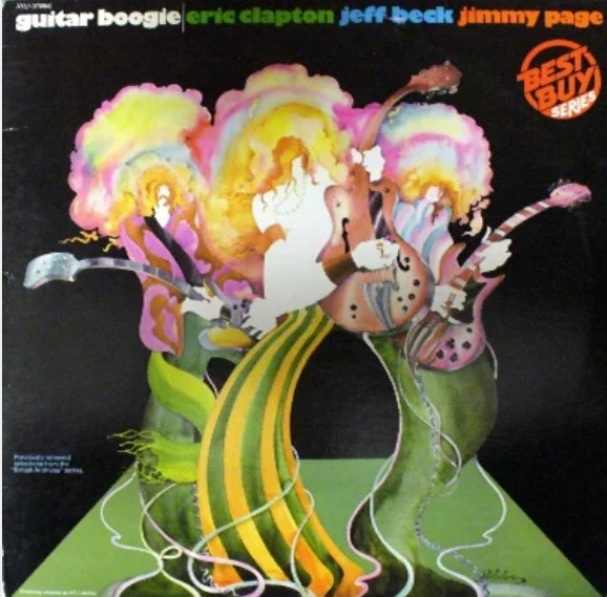
Some real Rock Anthropology here. In 1965 John Mayall and his band, The Blues Breakers, featuring guitarist Eric Clapton, who’d left the commercially successful Yardbirds because he wanted to play The Blues, got a deal with Immediate Records, which was owned by The Rolling Stones’ manager Andrew Oldham, to record a single: “I’m Your Witchdoctor” and “Telephone Blues.” They went into a studio session overseen by Immediate’s new in-house producer, Jimmy Page.
One Session, according to Jimmy’s website, was August 17th, another on the 22nd of September. This was the year preceding Mayall’s (and Clapton’s) seminal “Beano” album, which was recorded in May of 1966.
What makes this a historical confluence of karmic proportions: besides the session itself, Clapton and Page got together after hours in the home studio of Jimmy's house to have some fun, jam, recording loose 12 bar blues. An academic gold mine, you hear two monuments of rock guitar working on licks, getting their chops down.
We first got onto these recordings in the Seventies when we found an LP called White Boy Blues, though the most notable collection of this material was entitled Guitar Boogie.
Jimmy spoke about what happened to Pete Frame for his 1974 book: The Road to Rock: A ZigZag Book of Interviews:
“That (Blues Anthology Immediate LP) was a real tragedy for me. I got involved with Immediate, producing various things, including..."
Continue The Immediate Sessions
An Absolutely Priceless Video
Jimmy Page Reunites with His Iconic "Dragon Telecaster"
Shot in 2019 to promote the Metropolitan Museum of Art’s “Play It Loud” Exhibit, Jimmy Page talks about his iconic guitars, amps and gear, among them his double-neck Gibson SG, the ’59 Les Paul Standard he got from Joe Walsh, and his use of the bow and theremin. The highlight, however, is the way Jimmy brightens when he picks up his “Dragon” Telecaster.
“I love this guitar,” says Page, beaming.
It is possibly the most personally revealing moment Jimmy Page has ever exhibited.
Perhaps the most legendary guitar in Classic Rock, used to record the first Led Zeppelin album, the Dragon Telecaster has a storied history...
Continue I Love This Guitar
Top 10 Greatest Guitar Riffs in Classic Rock History
by Jim Esposito

Saw an article on the Internet which claimed to cite the Top 10 Greatest Riffs in Classic Rock History. It was way, way off. Figured we’d publish the official list, compiled by someone who actually knows what they’re talking about.
It is important to note when we say “The Greatest” we mean The Best – not the most popular, riffs in the biggest songs. Riffs from Number Seven to Number One are pretty much nailed into place. You might argue some of these should be moved up or down a spot or two, but frankly we don’t see how you can possibly say any other riffs should be ranked higher.
Incidentally, for those doing those other lists –
Continue Top Guitar Riffs
Classic Rock Record Review
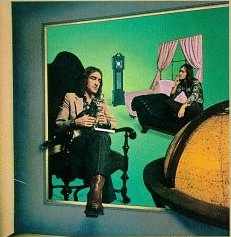
Dave Mason
It's Like You Never Left
Released 1973
Columbia Records
by Jim Esposito
I hear guys like John Mayer and Ed Sheeran, to me they sound like Fourth Generation Dave Mason. A forgotten artist, English guitarist, singer-songwriter Dave Mason was a founding member of Traffic, played lead guitar on their early records. He wrote “Feelin’ Alright?” on their second album, the eponymous Traffic, came out in 1968. Released as a single it didn’t fare well, but Joe Cocker covered the song for his debut With a Little Help from My Friends, and his version hit the charts. “Feelin’ Alright?” was subsequently recorded by a number of artists, among them: Three Dog Night, Gladys Knight, the Jackson 5, Diana Ross, Isaac Hayes, Grand Funk Railroad, Little Milton and Craig Chaquico.
Mason was in and out of Traffic through the late Sixties into the early 70s. There’s a famous quote by Sam Goldwyn: “I was always an independent, even when...
Continue Dave Mason
Classic Rock Memoir
In September, 1974 I flew into San Antonio to meet up with Bachman-Turner Overdrive. I’d met the band before. Earlier that year they’d played at the University of Miami. I’d written a stock formula piece wrapped around an interview with Randy Bachman, with quotes from C.F. Turner and Robbie Bachman.
They were great guys. Canadians. Down to Earth. Randy and Fred were in their 30s, a bit older than most other bands of that era. In addition, BTO were Mormons: did not smoke, drink, do drugs or consort with loose women. A very business-like approach, they attacked the U.S. Music Market through a series of guerilla raids. Booking a string of dates through a region, Bachman-Turner flew in to play the first night. Next morning they’d hop in a rental car, drive to the next. They did 4-5 shows in a row, then flew home to Vancouver, spent a week with wives and families. The week after they’d fly out again, hit a string of dates through the Midwest, California, or the Northeast.
This swing through Texas was a perfect example. They’d played Dallas and Odessa. I met up with them in San Antonio. They had a show in Austin the next night, Houston the night after. The opening act on these gigs was REO Speedwagon.
It was like being on tour with the Marines. I was usually throwing stuff into my suitcase when the hotel room phone rang. Their Manager, Bruce Allen, asking where I was. The car was leaving in five minutes.
Booked at the same hotel I met up with the band and Manager Bruce Allen when they were leaving for the gig. Six of us piled into a car, headed for the San Antonio Municipal Auditorium.
As it happened I’d just read an article in Creem Magazine about Bachman-Turner touring Texas opening for REO Speedwagon. In those days you wrote a story, mailed it to the magazine. It hit the stands 3-4 months later. Riding from the hotel to the show I mentioned how interesting that was...
Continue Memoir

Like – DUH! Blues
Top 10 Best Blues Albums in Recorded History
by Jim Esposito
There are hundreds of excellent blues albums out there. They feature one or two great songs, two or three good tracks, a couple others you can listen to, one or two you don’t especially wanna sit through – but you do because you really like those two great songs.
In this article we’re not talking about the most significant, the most influential. We’re talking about the best. The most listenable. Robert Johnson was perhaps the single most influential person on Rock and Blues music in the last century. That doesn’t mean I play his records. It’s like archeology.
The Blues are elemental. Growing out of cotton fields down South, the genus was confined at first to the (quote, unquote) “Negro population.” Founding Blues pioneers like Charley Patton, Son House and Robert Johnson playing “The Devil’s Music” in weekend Juke Joints around plantations in the Mississippi Delta inspired the likes of Muddy Waters, Howlin’ Wolf and Elmore James, who eked out a meager living in relative obscurity while white kids did the Mashed Potato at Sock Hops in High School Gyms to Ricky Nelson and The Four Freshmen.
A different story in England where a whole generation of budding guitar virtuosos freaked over American Blues. A big component of the fabled British Invasion was...
Continue Top Blues Albums
Classic Rock Record Review
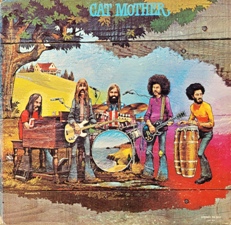
Cat Mother
Cat Mother
Released 1972
Polydor Records
by Jim Esposito
Music, recording albums, is a mercurial and capricious enterprise. Sometimes the stars align. No other explanation for Cat Mother. It’s great. And that comes totally out of left field. These are guys you probably never heard of, who hadn’t done much before, never did anything afterward.
The band released two LPs prior to this, and they were (I’m being nice here) mediocre. Cat Mother & The All Night Newsboys first appeared in 1969 with a Top 40 hit called “Good Old Rock ‘n’ Roll” that peaked at #21 on the U.S. Charts. A medley of 50s and 60s rock ’n roll tunes by Chucky Berry, Little Richard, the Big Bopper and Jerry Lee Lewis, it came off their first album The Street Giveth and the Street Taketh Away, produced by (no lie) Jimi Hendrix...
Continue Cat Mother
Classic Rock Updates
Sign Up For Our Email List!
Receive a Notification When New Content Is Posted
Email Your Email Address to jim.classicrockforever (at) gmail.com
We do not SPAM. You will receive one email every week or two.
We will never sell your email address and you can easily unsubscribe at any time.
Help Support Our Site
Shop Amazon through Classic Rock Forever
Amazon.com
Click on Link, go to Amazon, search for whatever you want. We'll get credit.
Best Internet
Radio Station
Less Talk &
More Rock
Listen Now!
We program our station with Special Digital Sound Processing making Classic Rock Radio sound better than ever.
New Release!
Rock 'n Roll Nights
A High Octane Fictionalized Memoir Backstage at the Hottest Rock Club in The World
by Internationally Recognized Music Journalist
Jim Esposito
Available Now on Amazon!
Buy Now!
Learn More!
Classic Rock Updates
Sign Up For Our Email List!
Receive Notification When New Content Is Posted
Email Your Email Address to
jim.classicrockforever (at) gmail.com
We do not SPAM.
You will receive one email every week or two.
We will never sell your email address and you can easily unsubscribe at any time.
Make Sure You Visit
Our Friends at
The Ultimate Online Library of Classic Rock Journalism
Over 40,000 Articles
The World's Biggest Archive of Stories, Interviews & Reviews
From Allmans to Zappa
Rock's Baclpages
Help Support Our Site
SHOP
Amazon.com
through
Classic Rock Forever
Amazon.com
Click on Link above, go to Amazon, then search for whatever you want.
We'll get credit.
Listen To Audio
Jim Esposito's
Explosive Interview
with
Ritchie Blackmore
Deep Purple's Somewhat Tempermental Guitarist Dumps The File in 1973
Blackmore
“Second Best Interview in Rock ’n Roll History”
Grace Slick
Rambles On
(And on and on
and on and on...)
Grace Slick
The funniest book you'll ever read!
High in The Sky Over Florida
Very High
by Jim Esposito
“Like the weirdest guy I ever met.”
– Grace Slick
Available Now on Amazon!
High Fliers